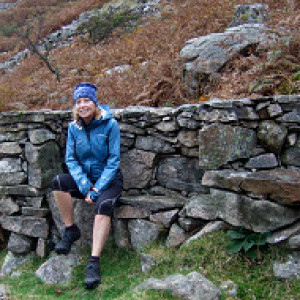The Heaton Window
The weather was atrocious today as I'm sure you noticed. We spent the morning preparing food and getting ready for a 60 mile walk that Ian is leading next weekend in the Lakes. I'm going to provide support given my ongoing recovery from injury. So this afternoon we found ourselves indoors at Bolton Museum.
You're lookin at the Heaton window, which came from the marble stairway in the office of the Heaton family's Lostock Junction Mills. The mill closed in 1971 and a housing development was built and for two years Ian and I rented a house on the site of the old mill.
In the 1940s two young people were working at the mill and struck up a relationship - I wonder if they passed by this window in their daily routine. They married in 1944, the young man kept his A1 (first class) medical certification which said that he was fit for service in the RAF in the second world war. Shortly after this, he found himself in a reserved occupation because the mill was manufacturing material used for parachutes by the RAF. That young couple was my mum and dad and here's a picture of their place of work.
The Heaton family began as small scale farmers and weavers, they successfully mananaged to develop their business with the changes in techology. You can see in the centre of the window the family's coat of arms and Latin motto: 'nec temere nec timie' - translated ' neither rashly, nor timidly'. True pragmatism won the day.
The script in the centre of the window reads:
"The Heaton Family. Established at Delph Hill Mill in 1800 as spinners by power of the finest sea island (a variety of cotton) yarns. Having spun 800s for the Exhibition of 1851. Previously the family were spinners by hand and weavers by handloom of the finest cambrics (type of cotton cloth) from times immemmorial as well as the owners of land in the district."
The Heaton family's mill at Lostock Junction was an example of a direct rail connection to a mill. This allowed rapid movement of raw material and finished products, using the latest communications technology of the railway, until global market changes wiped out the cotton manufacturing industries in the UK in the 1960s and 70s.
Turned out to be quite a nostalgic visit. Hope you've all had a good weekend :)
This also ticks off this week's 2012 challenge 'Window'
- 4
- 0
- Panasonic DMC-GF2
- 1/50
- f/2.5
- 20mm
- 100

Comments
Sign in or get an account to comment.


